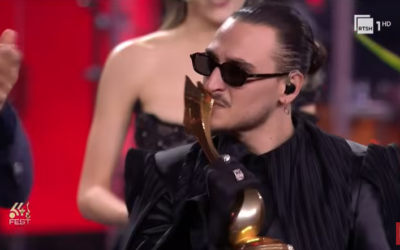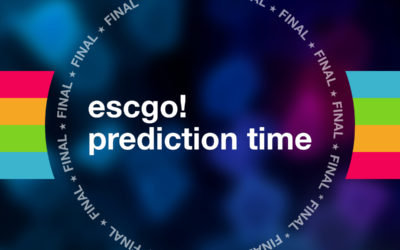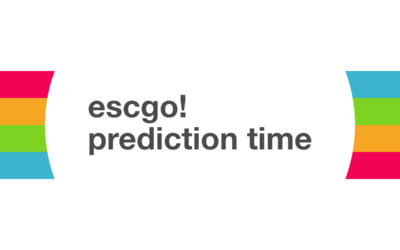We all want the Eurovision Song Contest to be fair. That goes for us, the fans, but also for most artists, delegations and regular people in the respective countries. A fair contest is in the interest of participants, fans and TV viewers alike, and we would assume that it’s also in the interest of the organizers.
In the days since the recent ESC final, several stories about bought votes have surfaced. And if that wasn’t already enough, we have seen high-ranking politicians from several Eastern European countries complaining about their nations receiving no or too few votes from certain other nations.
This inevitably makes many of us assume that the contest is indeed more political in some countries than it is in others, and definitely more political than the contest itself wants to be.
Especially the stories about buying votes – whether a mere conspiracy theory or the truth – have caused strong reactions among many fans, leading to the launch of a petition to get the EBU to release the detailed results as soon as possible (see “Background” below). While esc-chat.com isn’t actively supporting the petition, as we don’t necessarily agree with the part about changing the voting rules, there can be no doubt that full disclosure by the EBU would be a very welcome step right now.
Obviously, this in itself would not change the results for 2013 – but it would give the EBU the opportunity to help save the contest’s reputation.
Fairness – within reason
How so? Well, one thing needs to be accepted: The Eurovision Song Contest can never be completely “fair”. There will always be countries that automatically attract more points than others do, no matter what rules apply in the respective year. Be it because of diaspora votes, shared taste and shared music markets with their neighbours, bought votes, or simply tourists calling for their own country from abroad – as happened in the early televoting days with Guildo Horn. Or, going back further still, because of being allowed to use (or being prohibited from using) the more accessible French or English languages, as we saw in the era of the native language rule.
What we mean is: Even if you could and would completely eliminate bought votes as a factor, it would only make the contest slightly fairer, as a completely fair song contest can never exist. Not least because songs have no objectively measurable quality, unlike sporting disciplines, for example.
However, it should be in all our interests to make the contest “as fair as reasonably possible”. And that’s where only the EBU can make the most decisive and effective contribution.
The way forward for the EBU
To establish the reputation of a contest that is “as fair as possible” requires transparency in first place, but also asks the producers for neutrality. With the producer-determined “draw” for the running order, the organizers have put themselves into difficult terrain where they leave themselves open to becoming the victims of conspiracy theories. It is in the interest of the contest’s reputation that this terrain is left behind as quickly as possible.
We don’t know if the accusations of bought votes are true or untrue, and we don’t intend to raise further doubts – the arguments and accusations are out there already, for better or worse. However, it certainly cannot be denied that some of the voting patterns in recent years have become quite noteworthy, such as the Maltese generosity towards Azerbaijan.
Azerbaijan is also at the heart of the latest development, with eurovicious publishing information on Twitter and Eurovisionista in which he accuses other Eurovision fan websites of being funded by institutions of the Azeri regime, leading to them writing favourably about and avoiding criticism of the country. While a causal link between the aforementioned support and the editorial content of the websites in question remains a matter of interpretation, as fellow “fan journalists”, it goes without saying that we continue to watch both sides with critical eyes.
Moreover, this has made a hot topic even hotter than it already was – and whether the various accusations and theories concerning the voting at the Eurovision Song Contest turn out to be true or not, responsibility for beginning the process of clarification lies firmly with the EBU at this point.
Conclusions
The organizers of the contest should contribute to (re-)establishing the highest possible fairness and reputation by removing themselves from suspicious situations in the first place (i.e. bringing back the random draw), by making the contest more transparent (e.g. by immediately releasing the detailed voting results for all countries – surely an easy matter in an electronic age where all of the votes are collected centrally anyway), and by taking clear and public action if a manipulation of the voting procedure can be evidently verified, and if the cause can be proven to lie within the sphere of responsibility of the respective participating delegation.
Certainly, buying votes is not in itself an illegal activity. But this is a contest, and every game has its rules, otherwise the game loses its reputation, its appeal and its raison d’être.
The Executive Supervisor of the Eurovision Song Contest, Jon Ola Sand, recently responded: “The millions of viewers in Europe and the contestants, who have put heart and soul into their performances, deserve a fair and transparent result“.
There is nothing more to add, is there?
Felix & Martin
| BACKGROUND |
| Initially, the Lithuanian online newspaper 15min.lt published a video showing an alleged “deal” between “agents” and “journalists”, trying to make them vote massively for Azerbaijan.
12points.tv were among the first media to report on the matter. The official website of the Eurovision Song Contest, eurovision.tv, released an article in which executive supervisor Jon Ola Sand responded to the accusation. A petition was subsequently launched in order to make the EBU “release the full split televote and jury results for each country. Not a month after the contest as usual, by which time said results can theoretically be rejigged so as to be mathematically plausible. Now. The situation demands it, and the contest’s survival and reputation are at stake“, but also – and this we don’t necessarily agree with – “to return to the 2010-2012 voting system, which takes both the highest televote scores and highest jury scores into consideration, thereby ensuring televotes are never cast in vain.” eurovicious recently released an article on eurovisionista, accusing certain fan websites of being funded by Azerbaijan. |












0 Comments